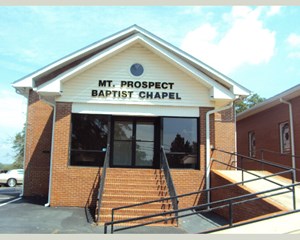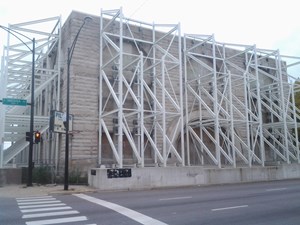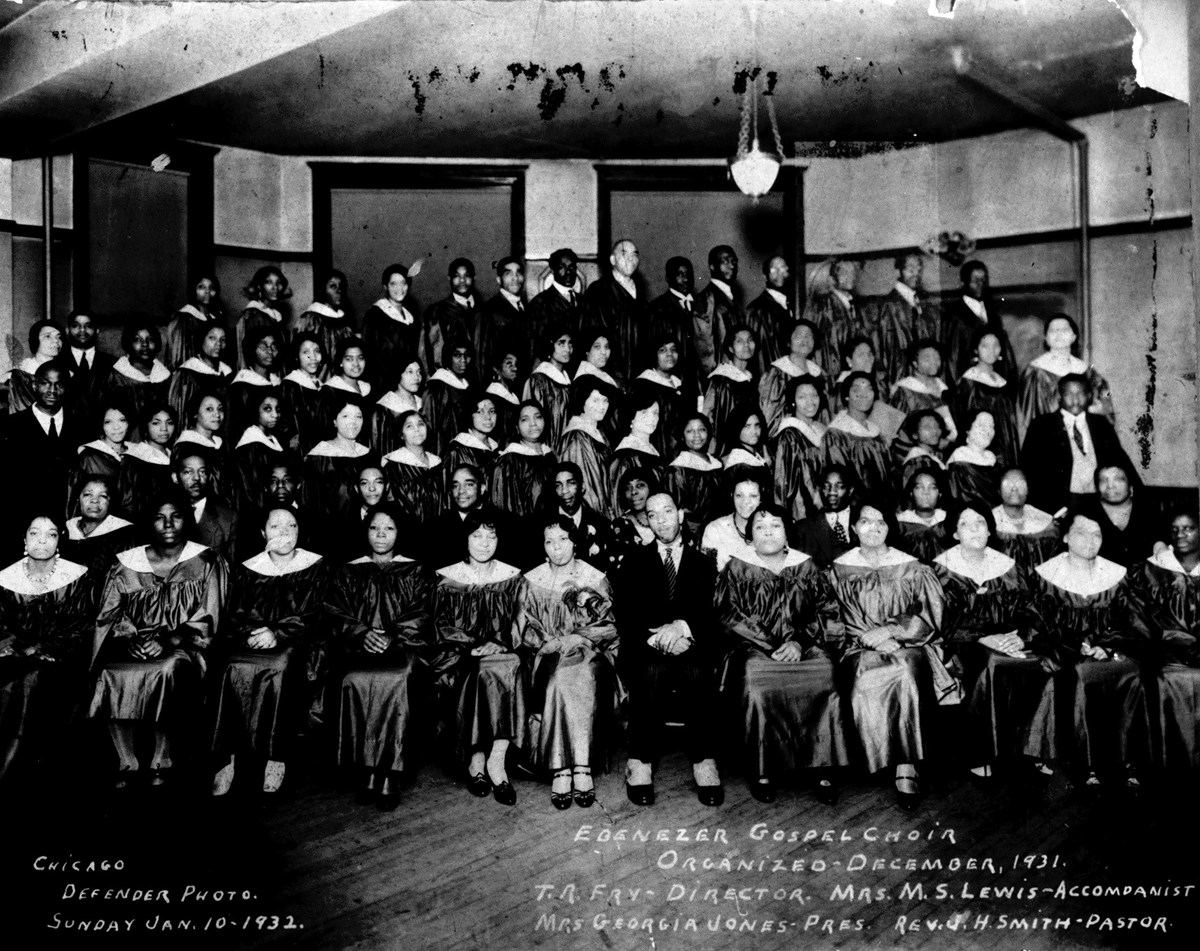Thomas Dorsey became 33 years old and had a flourishing profession in secular song. within the outdated 15 years, the Georgia native had moved to Chicago, achieved his musical experiences while picking up an limitless number of aspect jobs, and eventually found a means to help himself and his expectant spouse as a full-time musician. nevertheless it wasn't to closing. in the next months, Dorsey would lose his better half and new child son, a tragedy which spurred him to heed the suggestions of those closest to him. He would go away the secular tune scene behind and completely commit his musical presents to the church.
Over the next 60 years, Dorsey became conventional because the "Father of Gospel tune," penning tons of of songs and redefining the genre in beat, rhythm, and tempo. because the Voice mentioned, the Chicago musician dubbed his work "songs with a message."
Nothing will take the location of gospel tune. … somebody could do it in another way or add some thing to it, but any power within the tune have to come from God … and it's all about what God wishes.
The child entrepreneurThomas A. Dorsey become born in Villa Rica, Georgia, a small town outdoor of Atlanta, in 1899. He became the son of Thomas Madison Dorsey, a Morehouse school–trained, itinerant Baptist preacher, and Etta Plant, a Villa Rica native. when they married, Etta's family unit was very influential in Villa Rica and owned a significant amount of land. however within a couple of years, the family lost their property, allegedly as a result of back taxes. Thomas's father, a respected trainer and preacher, turned into compelled to work as a sharecropper on the very land formerly owned with the aid of his spouse's family unit. inside a few years, the Dorseys moved to Atlanta in 1908, where each fogeys worked to assist the financially struggling household live on.
 photo: Courtesy of Doris Dorsey
photo: Courtesy of Doris Dorsey Mt. Prospect Baptist Church, Villa Rica, Georgia
The adjustment wasn't handy for Thomas. He become placed a year behind his classmates in the Atlanta public school device and his peers often made enjoyable of his speech and garments. Thomas dropped out of college on the age of 10 and began working at a famous black vaudeville theater, carrying water and doing different peculiar jobs. He reminisced about those early experiences in an interview with writer Viv Broughton in her booklet Black Gospel: An Illustrated history of the Gospel Sound:
As a boy, I bought pop, ginger ale, and purple rock on the eighty one Theater, and that i acquired an opportunity to fulfill the entire stars … and they might want a pop or whatever thing, a cold drink on credit score except payday, and i bought a chance to grasp them all! I stayed 'round that theatre, I'd hang 'round that theatre, and i learned plenty. I learned blues; I might play the piano, and i believe it paid off very well for me.
As a younger boy, Thomas had discovered to play the piano from his mother, for whom song had been a major a part of her own family life. (Etta turned into an organist and her brother Phil became a well-known blues guitar participant.) After the household moved to Atlanta, Thomas started walking 30 miles every week to take formal music classes. As his musical capacity more advantageous, Thomas began playing for church buildings, condo rent parties, bordellos, and women's teas to assist complement his household's income.
The Chicago challengeIn 1916, at the age of 17, Dorsey moved north to Chicago to pursue a musical career. Success became originally difficult to come via. Dorsey soon learned he couldn't earn union scale wages as a musician and not using a card, and he couldn't obtain the cardboard with out a formal tune schooling. (Musicians' wages have been paid based on a scale determined through their credentials with the professional Chicago union of musicians.)
To pay for his training, Dorsey labored days at a metal mill in Gary, Indiana, attended school at nighttime, and dependent his personal nightly hire-celebration circuit. (employ events were parties organized via tenants to pay for their hire.) In 1919, Dorsey achieved his musical reviews at the Chicago school of Composition and association and obtained his union card. Now he changed into free to play any place in Chicago and carried out with quite a lot of groups, together with the Whispering Syncopators and a jazz orchestra.
 photo: Courtesy of Doris Dorsey
photo: Courtesy of Doris Dorsey Pilgrim Baptist Church
Dorsey also joined Pilgrim Baptist Church. A preacher's youngster who had confessed religion in Christ as a toddler, he had additionally been influenced by using his father's flamboyant style, which he frequently imitated on the household porch in Villa Rica. but faith wasn't a major precedence in Dorsey's existence unless his early 20s, when he experienced a 2d conversion at a countrywide Baptist conference (NBC) in 1921. He connected his event to Steve Turner in his book An Illustrated historical past of Gospel:
There became a Baptist conference up the highway from where i used to be staying. i was taking part in rags and blues at parties, and things on Saturday night. There changed into a fellow who got here to the conference via the identify of Nix who stayed with my uncle, and he obtained up one nighttime and sang "i know a superb Savior, I Do Don't You?" After he complete, the minister said any one might be a part of the church. in case you had been interested, they might send you to a church of your option. i assumed, "here's my possibility." i was enjoying jazz song. in fact, i used to be working in golf equipment. So I quit. I walked off my job.
at first, Dorsey's conversion spurred him to conclusion his secular song profession, and he all started enjoying for a storefront church. however the profits wasn't satisfactory to pay his expenses. So, once once again, Dorsey all started to work in jazz and blues clubs. In 1924, Dorsey, with the Wild Cats Jazz Band, debuted with Gertrude "Ma" Rainey, at the Grand Theater in Chicago. Performing with Rainey turned into a major career smash for Dorsey: She was commonly used as the "mother of the Blues" and composed over a hundred songs right through the mid-Nineteen Twenties. Dorsey also scored and transcribed song for artists and singers, working closely with Mayo "Ink" Williams, who promoted tune produced for a black viewers by means of Paramount Studios.
despite personal success, melancholy plagued Dorsey all through his profession. He looked on stage one nighttime with Ma Rainey and changed into unable to play. As biographer Michael Harris recounts in the upward push of Gospel Blues:
He pointed out that he's playing at this membership, and he tries to play some more and he can't. i'd say to him what happened? were you paralyzed? numbness? He doesn't remember any of those issues, and he said, but i do know my fingers—i know I may move my fingers. I simply couldn't play. think of that. I even have the muscular potential to stream, however i can't play. In other phrases, i will't make music. i will't create.
some of these close to Dorsey, besides the fact that children, believed some thing else turned into at work. His wife and sister-in-law have been sad that he had persisted to pursue a secular musical career. Dorsey's wife, Nettie, whom he married in 1925, believed that God had referred to as him to put in writing and sing gospel music and that the supply of his inner turmoil stemmed from ignoring God's calling.
Yet his secular career was rising. In 1928, Dorsey and guitarist Tampa pink launched, "It's Tight Like That"—a country wide sensation and a religious scandal. The song's bawdy lyrics described lovemaking between a man and a girl. It turned into an rapid success, selling over 500,000 copies. but pastors scoffed at a honky-tonk blues player trying to compose church song. They felt his track wasn't proper for dignified church worship.
issues started to exchange for Dorsey within the Nineteen Thirties when influential NBC musicians started championing his tune. A performance of Dorsey's composition of "if you See My Savior" all over a morning devotion left people "slain within the spirit." Two NBC musicians gave Dorsey permission to deploy a sales space at the 1930 convention the place he offered greater than four,000 copies of that song. For his half, Dorsey endured to play secular song while he visited church buildings and asked pastors to hearken to his spiritual compositions.
A painful conversionIn 1932, Dorsey's fight between secular and sacred reached a tragic resolution. The musician had gone to St. Louis to sing at a revival. all the way through his commute, he got a telegram telling him to come domestic— his wife had simply died in childbirth. His baby son died the following day.
at the beginning, Dorsey grew to be angry and bitter with God after their deaths, believing that God had wronged him. In his grief, he refused to do the rest for God; he best wanted to pursue his secular profession. however God had whatever to say to him, as Dorsey later recounted in "The precious Lord Story and Gospel Songs":
You aren't on my own. i attempted to speak to you earlier than. It was you that should still have gotten out of the motor vehicle and not long past to St. Louis. … I observed, thanks, Lord, I consider. I'll in no way make that identical mistake once again.
the following Saturday after Nettie's demise, Dorsey met up together with his buddy Theodore Frye. There, he later noted, God gave him the words and melody for "Take My Hand, valuable Lord":
anything happened to me there. I had a strange feeling interior … a relaxed—a quiet stillness. As my fingers started to control over the keys, phrases all started to fall in vicinity on the melody like drops of water falling from the crevice of a rock.
The popularity of "precious Lord" throughout the nation helped revolutionize the worship environment and later, inspired many in the civil rights flow. Frye delivered the music to Martin Luther King Sr.'s Ebenezer Church. On the day he died, Martin Luther King Jr. requested that "valuable Lord" play at a future adventure. The song later played during each Martin Luther King Jr. and Lyndon B. Johnson's funerals.
tune as a Christian callingDorsey introduced his own ideas to church music. He insisted that the aim of his song wasn't to tear down the ordinary historical-line church buildings but to commit his musical presents to God, as the rise of Gospel Blues quoted him:
I wasn't attempting to change it [church music], however i used to be just struck with something that could alternate it over, whatever thing that God gave me. He permitted it; I acquired my authority from God.
 photograph: Courtesy of Chicago Defender archives
photograph: Courtesy of Chicago Defender archives Ebenezer Gospel chorus
Dorsey dubbed his track "gospel blues" because of the similarity of his gospel rhythms and vocals to those heard in blues and jazz golf equipment. He employed the "call and response" pattern in his songs that additionally reminded pastors of songs composed and sung with the aid of their enslaved ancestors.
ultimately, Dorsey's style of worship took hang. In 1931, the dependent "silk-stocking" Ebenezer Baptist Church prepared a gospel choir, marking the beginning of gospel tune's acceptance with the aid of mainline churches. The power from the brilliant Migration also impacted this social musical revolution. Blacks relocating to the North from the South desired a kind of singing that reminded them of domestic—songs with rhythm, hands clapping, and feet tapping.
pissed off with the Northern worship style, newly arrived Southern blacks who had joined big churches left and commenced to join storefront church buildings where worship functions resembled those they left in the South. Pastors at natural church buildings started to take observe.
At Pilgrim Baptist, Dorsey's personal pastor changed into inspired through the success of Ebenezer's gospel choir, and he quickly employed Dorsey to serve as the church's gospel choir director and musician in 1932. Dorsey held that place for more than 50 years. Ebenezer and Pilgrim's acceptance of gospel music as a spiritual style helped to gas gospel track's prominence in church worship now not only in Chicago however additionally across the country.
The equal 12 months that Dorsey determined to pursue gospel music full time, he and a few fellow musicians equipped a mass Chicago gospel tune chorus. That customary choir elevated into the countrywide convention of Gospel Choirs and Choruses (NCGCC), prepared at Pilgrim Baptist Church in 1933. The NCGCC grew to be the first company for black gospel singers within the nation.
Sallie Martin, one in all Dorsey's singers, grew to become the first organizer of the convention, traveling around the nation and adding choral unions and chapters to the corporation. The NGCCC provided musicians and singers throughout the country a venue to hone their craft, be trained from each and every other, and take lower back songs (affectionately referred to as Dorseys ) to teach to their own choirs.
In 1940, Dorsey married his 2d spouse, Kathryn, who had particularly visited Pilgrim to "seize his eye." together, the couple had a son and a daughter. Kathryn proved to be a supply of suggestion for her husband—her identify is covered on a few of his song publications.
A gospel legacyThomas Dorsey posted and carried out his personal music for a long time. He earned his nickname as "the daddy of Gospel tune" because of his have an impact on on typical gospel from the Nineteen Thirties to Nineteen Fifties. for many of his existence, when he wasn't playing or main song in Chicago, Dorsey traveled across the u.s. demonstrating his track, conducting workshops, presiding over track conventions, and sometimes writing.
considering 1993, Dorsey's fatherland of Villa Rica has held a competition honoring his contributions to gospel, blues, and jazz. His former organisation, Pilgrim Baptist also hosts an annual tribute to his legacy. Gospel track has develop into an established course in schools around the nation; one Christian faculty now presents a bachelor's diploma program in gospel tune. The crowning testomony to Dorsey's legacy might be the proposed national Museum of Gospel music, which is decided to open on the site of the usual Pilgrim Baptist Church building.
Dorsey all the time admitted that he didn't coin or invent the time period gospel song. Yet he revolutionized its sound and start. His songs had a beat, rhythm, and tempo and shared the decent news, as quoted by the upward thrust of Gospel Blues.
I took the notice, took a bunch of singers, or one singer … and that i embellished [gospel], made it appealing, greater great, and extra prone with runs and trills and moans in it. That's basically probably the most factors my people referred to as it gospel song.
Dorsey's songs shared the message of God's love and look after his americans. They gave hope to individuals during the depression and Jim Crow period. As he later reminisced in Salim Muwakkil Chicago Reader's piece:
I kept pushing gospel because, by some means, I knew i used to be right. I knew i used to be the one the master desired to do it, and that i did it. i was richly rewarded for my persistence. I've traveled and performed everywhere the area, and i've heard my songs sung in lots of different languages.
A prolific songwriter all through his ninety three years of lifestyles—Dorsey died in 1993—he on the other hand saved a smooth spot for the hymn that catapulted his gospel profession, calling it "the most efficient tune I actually have written out of close four hundred gospel songs."
"The rate exacted for 'valuable Lord' changed into very excessive," he talked about at the age of 70, alluding to the loss of his first wife and son. "The grief, the sorrow, the loneliness, the loss, the uncertainty of the longer term, but i was requited or repaid with double dividends and compound pastime."
Kathryn B. Kemp is an affiliate minister at Memorial Baptist Church, member of the Pastoral Alliance of the national convention of Gospel Choirs and Choruses and the educational college of the Gospel song Workshop of the united states. Her music ministry spans more than 50 years of service. She has written two books on gospel music, and her e-book Sacred music Survival: Salvation in the African American religious adventure is due for e-book later this 12 months (Covenant Books).
No comments:
Post a Comment